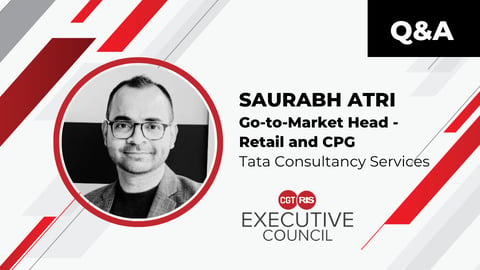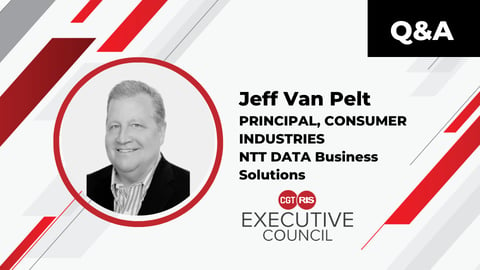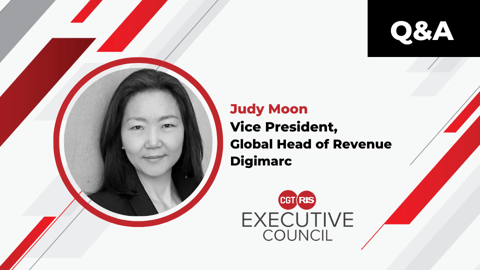Gaining the Agile Advantage: Tips from Accelerate360's Trey Holder
Trey Holder is a seasoned thought leader and executive in the CPG and retail tech space, boasting an array of roles over the course of his career: CEO, chief business officer, president, start-up co-founder, and managing partner. Known for an on-the-pulse awareness of upcoming IT innovations, digital transformation, and dynamic shifts in retail and CPG technology, Holder is a leader whose expertise rides the wave of rapid industry advances.
In his role as chief business officer and president of distribution & logistics at Accelerate360, Holder leverages more than 20 years of experience in retail in leadership, logistics, merchandising, distribution, sales, marketing, and IT development into helping some of the world’s top companies accelerate growth and unlock even more value for their business.
As a CGT/RIS Executive Council member, Holder brings this extensive knowledge to bear, tapping into the ever-changing consumer trends that companies should keep top of mind, and providing insight on how to remain ahead of the game.
RIS: You've had a diverse career, with experience ranging from talent acquisition to retail innovation to children's author. What's been the unifying thread throughout all of your leadership roles?
I have tried to strive to diversify both my skill set and my network and surround myself with innovative thinkers from different industries over the last decade.
EC MEMBER SHARES
How long have you been with Accelerate360?
Nearly 5 years. However, I ran a company called Mercury Retail Services for ten years that was purchased by Accelerate360 in 2013.
What’s the best piece of advice you’ve ever received?
My mom was a firm advocate of understanding people and she taught me the importance of this trait at a very young age. It is really important to truly listen to the other person’s perspective before you react.
What are the three things you’d bring if you were stuck on a desert island?
1. A solar-powered iPod with different songs downloaded from reggae to rock.
2. A knife for a number of survival purposes.
3. Solar-powered satellite phone to get me off the island ASAP, communicate with loved ones, and find out the scores of my favorite team: the Texas Longhorns (Hookem)
What do you wish you knew how to do?
I wish I could build. We are always adding on to our house in some way and it would be nice for a number of reasons if I could do the work myself.
I actually started my career in a family wholesale distribution business and learned the ropes from the ground up. When the business sold in 2013, I was not sure if my skillset would translate to other organizations, so it was a very interesting time to go out and see what was possible. I decided to venture into some businesses affiliated with my traditional knowledge base like CPG and retail.
However, I wanted to see what else was out there and try to develop a more robust skillset by getting involved in other industries. Most businesses have the same obstacles and goals and there is so much you can glean from different industries. Ultimately, my career path brought me back to retail and CPG, but because of the detour, I was able to learn from other industry thought leaders.
RIS: What’s your sense of the industry's appetite for retail innovation today?
Retail and CPG executives are much more receptive to innovation today than in the past. We started a retail innovation immersion series at GMDC called Retail Tomorrow 7 or 8 years ago. It was very difficult to get alignment from executives from different size companies, retailers, suppliers, and solution providers on what mattered most. People looked at e-commerce, AI, robots, and other innovative technologies as something that would happen in the future but not necessarily in the immediate future.
We chose the name Retail Tomorrow to try to galvanize buy-in. Tomorrow will be here before you know it. However, we are now at a point where there really is no option. The power has shifted from the retailer and supplier to the consumer. Now, the consumer dictates when and where they will buy a product and what they are willing to pay for it. The consumer’s expectations are higher than ever and the consumer expects both brands and retailers to know who they are and what they want. Ultimately, if you don’t foster innovation inside your company to meet the customer’s goals, you will not survive.
RIS: Where do retailers and CGs need the most support?
Support is needed with the technology side of the business. CPGs and retailers are both great at developing goods and products and they are typically great operators, but technology is still new in the whole scheme of things for this industry. So many companies have major bottlenecks on the tech development side of their company that they miss the boat on trends. It is shocking how many major CPG companies still do not have DTC capabilities or even a road map to get there. Many retailers and CPG companies did take advantage of the e-commerce opportunity generated by Covid. A lot of companies did have e-commerce on the roadmap but they were not prioritizing it. The companies that had already prioritized e-commerce truly took off during Covid and have not looked back.
RIS: What are some of the new consumer behavior trends that you think fail to get enough attention? What should today's tech leaders have on their radar?
What should today's tech leaders have on their radar? Honestly, so many companies are behind on social media marketing and commerce and direct-to-consumer. This space is still growing and evolving daily and companies need an agile e-commerce and social strategy to keep up with what the customer wants. I expect to continue to see both of these spaces grow exponentially over the next several years.
RIS: What's one lesson today's legacy companies could stand to learn from startups?
Agility. Start-ups are much more entrepreneurial than large organizations and have the ability to iterate and pivot very quickly. This ability allows them to test and learn quickly and turn the boat quicker. I think it is very important to find and hire intrapreneurs in your organization. It's also very important to pair entrepreneurial people with people who have robust institutional knowledge of both the company and industry, allowing for a 360-degree mentorship.
These teams can really work together to ensure all knowledge is collected and a plan is developed that leverages the greatest strengths of the company quickly to take advantage of opportunities. Companies have to build a culture of agility. This means the operators have to be able to develop and build infrastructure that is flexible and ready to move quickly without damaging infrastructure. Speed kills. It can be very difficult for large companies to develop innovative products, processes, and strategies but a lot of larger companies develop skunkworks or labs to iterate like entrepreneurs without distracting or damaging the business.
RIS: What are some of the emerging technologies that you think will bring about the most change in the next 5-10 years?
AI is going to have a major impact. We are just at the tip of the iceberg with AI. Augmented reality will start to have a bigger impact in the next 10 years or so. We are a big believer in social commerce at our organization and believe entrepreneurs and influencers are going to continue to quickly start up businesses that will compete with large CPG companies and retailers alike.
This article also appears on RIS, a sister publication of CGT.








